Wartime brings extraordinary challenges to any nation, and the question “how can a civilian contribute during wartime?” becomes not just relevant but vital. While soldiers defend the nation on the frontlines, the backbone of any war effort is often the collective strength and resilience shown by civilians on the home front. Understanding how can a civilian contribute during wartime is essential for fostering unity, maintaining morale, and ensuring the continued functioning of society. This blog explores the many ways civilians can step up, drawing from history, modern examples, and practical guidance.
Wartime thrusts a nation into extraordinary uncertainty, demanding not just the courage of its soldiers but also the unwavering resolve of its civilians. Recent Pahalgam terrorist attack, has sent shockwaves across India and the world. This massacre, the deadliest assault on civilians since the 2008 Mumbai attacks, has triggered a rapid escalation of hostilities between India and Pakistan as Water War, with border skirmishes erupting along the Line of Control and both nations suspending key diplomatic agreements.
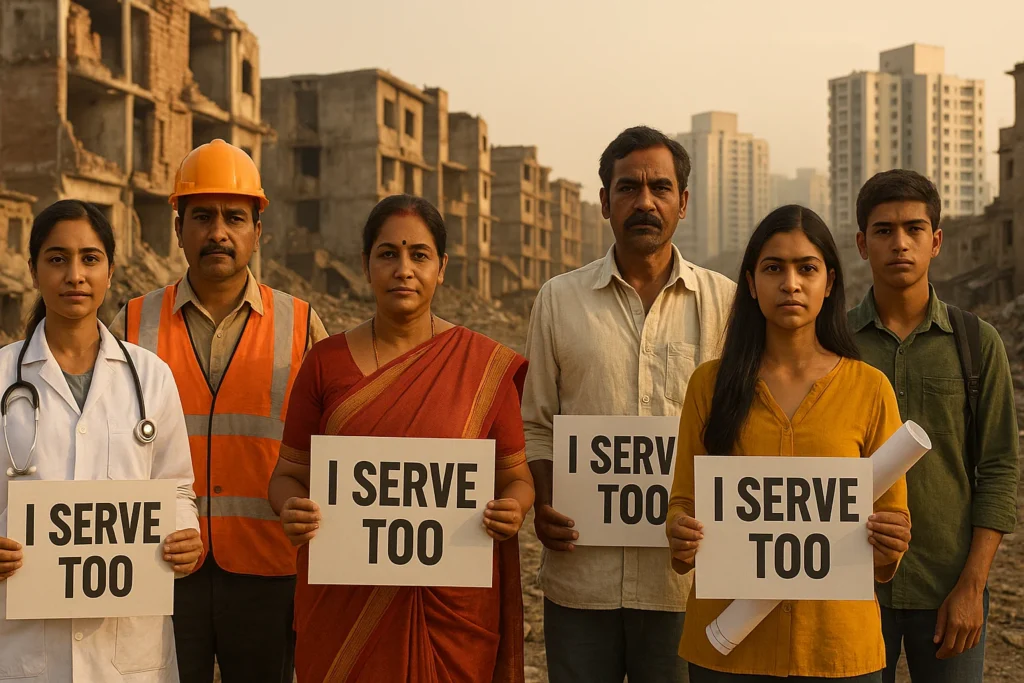
Table of Contents
Why Is Civilian Contribution Crucial During Wartime?
When conflict erupts, the impact is felt far beyond the battlefield. The entire social fabric is tested, and the answer to “how can a civilian contribute during wartime?” determines how well a nation can withstand and recover from the pressures of war. Civilians are not passive bystanders; their actions-big and small-can shape the outcome of conflicts and the well-being of their communities.
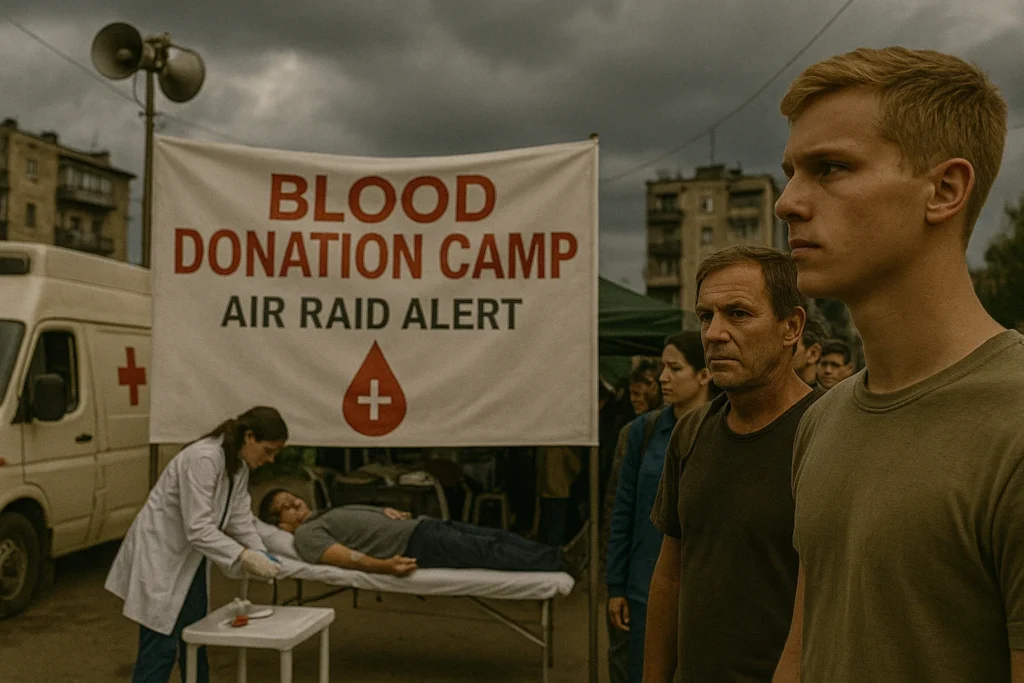
Historical Perspective: How Can a Civilian Contribute During Wartime?
History is replete with examples that answer the question, “how can a civilian contribute during wartime?” During World War I and II, civilians in countries like the United States, the United Kingdom, and India mobilized in unprecedented ways. They participated in fundraising drives, conserved resources, volunteered for civil defence, and supported soldiers through letters and care packages. In India, the Civil Defence Act and various volunteer organizations have long provided structured ways for civilians to get involved.
Civil Defence: A Structured Answer to How Can a Civilian Contribute During Wartime?
One of the most direct responses to “how can a civilian contribute during wartime?” is through civil defense. Civil defense organizations train volunteers in first aid, rescue operations, fire safety, and emergency communications. In India, for example, the Civil Defence Corps is a volunteer-based force that supports frontline emergency services, assists in disaster management, and helps maintain public morale. By joining such organizations, civilians gain the skills and structure needed to respond effectively during emergencies.
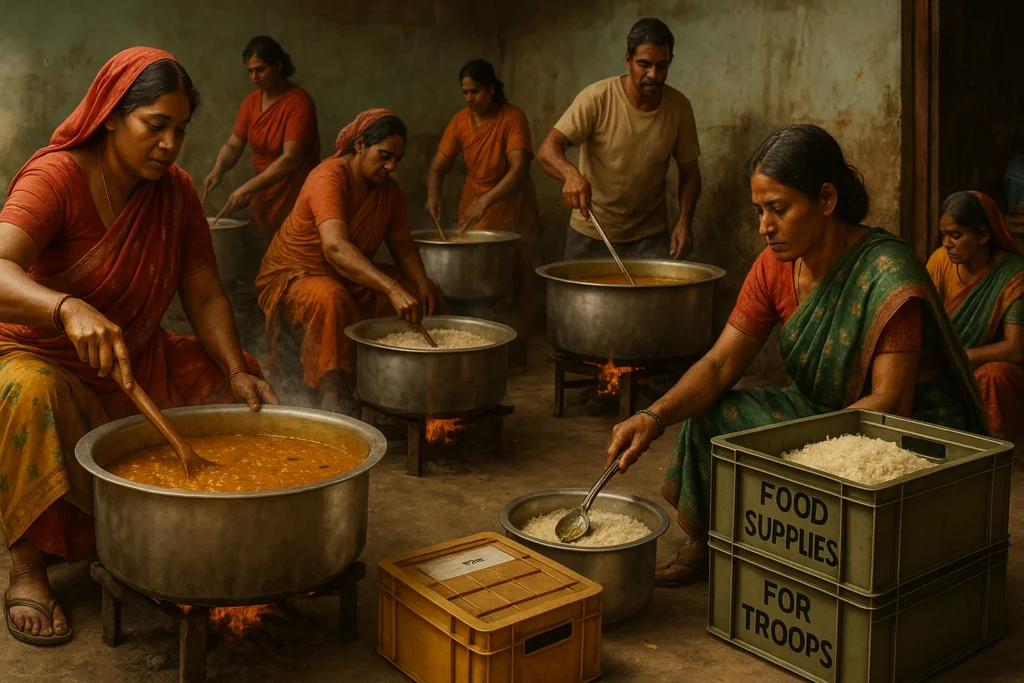
Resource Conservation and Rationing
Another important aspect of how can a civilian contribute during wartime is through resource conservation. During both World Wars, governments encouraged citizens to reduce consumption of food, fuel, and other essentials to ensure enough supplies for the military. Civilians organized “meatless” or “wheatless” days, planted victory gardens, and participated in recycling drives for materials like metal and rubber. These actions, though seemingly small, had a massive cumulative impact on the war effort.
Volunteerism and Community Support
Volunteerism is a powerful way to address the question, “how can a civilian contribute during wartime?” Civilians can offer their time and skills in a variety of roles:
- First Aid and Medical Support: Training in first aid and emergency response enables civilians to assist the injured during attacks or disasters.
- Rescue Operations: Volunteers can help rescue and support those affected by bombings or other wartime emergencies.
- Community Kitchens and Shelters: Organizing food distribution and temporary shelters for displaced families is another vital contribution.
- Support for Soldiers: Sending morale-boosting letters, care packages, or organizing entertainment for troops helps maintain the fighting spirit.
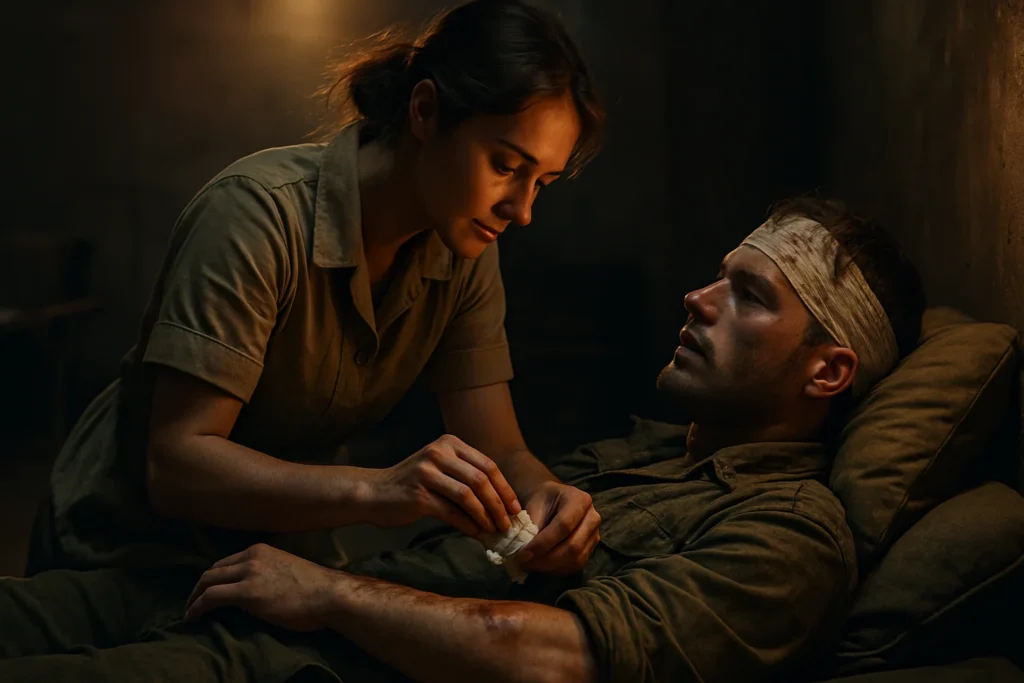
How Can a Civilian Contribute During Wartime in Industry and Infrastructure?
Many civilians ask, “how can a civilian contribute during wartime if they are not on the frontlines?” The answer lies in supporting the war economy. Civilians can:
- Work in factories producing arms, uniforms, and other essential supplies.
- Take up jobs in transportation, logistics, and communications to ensure smooth supply chains.
- Participate in the maintenance of critical infrastructure, such as railways, power plants, and hospitals.
During World War II, women famously filled roles in factories and shipyards, symbolized by “Rosie the Riveter.” Their efforts answered the question “how can a civilian contribute during wartime?” by ensuring the military had the resources needed to fight.
Fundraising and Financial Support
Another significant way how can a civilian contribute during wartime is through financial support. Civilians can:
- Buy war bonds or contribute to fundraising campaigns to support military expenses.
- Donate to relief organizations that provide aid to soldiers and affected civilians.
Such efforts not only provide material support but also foster a sense of shared purpose and national unity.
Information Dissemination and Countering Misinformation
In the digital age, how can a civilian contribute during wartime extends to the realm of information. Civilians play a crucial role in:
- Sharing verified information and government advisories to keep communities informed.
- Countering rumors, propaganda, and misinformation that can harm morale or national security.
Being vigilant about the sources and accuracy of information is a vital civic duty during conflict.
Youth and Educational Involvement
Young people often wonder, “how can a civilian contribute during wartime if they are not adults?” History shows that youth play a significant role:
- Participating in scrap drives and recycling campaigns.
- Assisting in community gardens and food production.
- Learning first aid and emergency skills through organizations like Scouts and Guides and NCC.
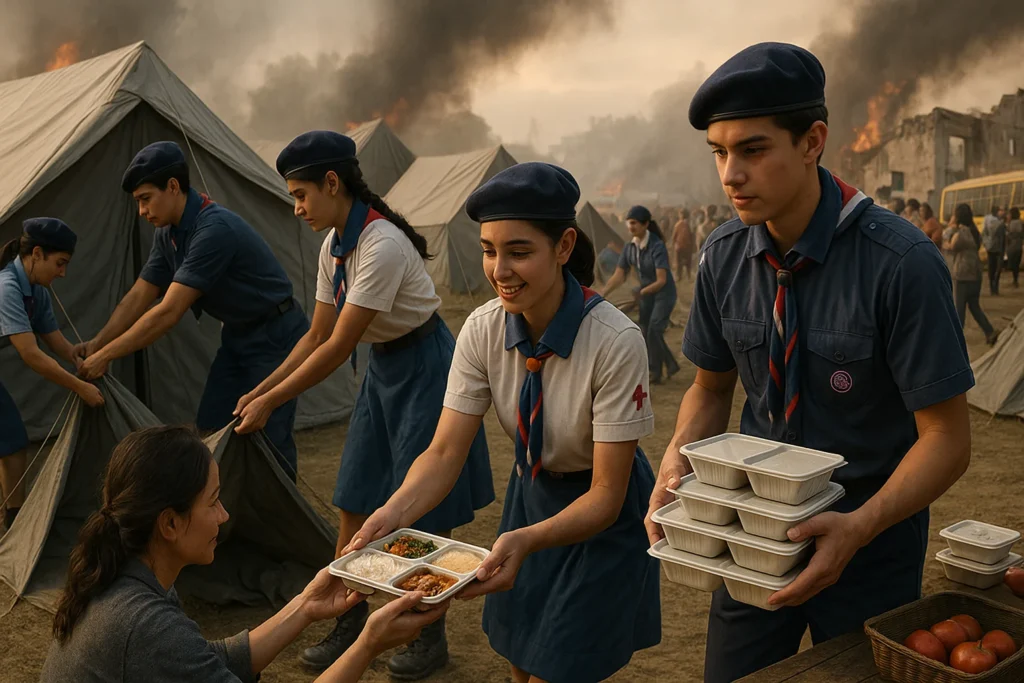
These contributions, while sometimes overlooked, are essential for sustaining the war effort and building resilience.
How Can a Civilian Contribute During Wartime Through Innovation and Ingenuity?
Wartime often sparks innovation. Civilians can contribute by:
- Developing new technologies or methods to improve efficiency in production or logistics.
- Volunteering professional expertise in engineering, medicine, or communications to solve urgent problems.
The ingenuity of ordinary people has historically led to breakthroughs that benefit both the military and civilian populations.
Moral Support and Social Cohesion
A less tangible but equally important answer to “how can a civilian contribute during wartime?” is by fostering unity and morale. Civilians can:
- Promote harmony and avoid divisive behaviour or speech.
- Support neighbours and vulnerable groups, ensuring no one is left behind.
- Participate in community events that strengthen social bonds.
Maintaining high morale and social cohesion is often the difference between resilience and breakdown during prolonged conflict.
How Can a Civilian Contribute During Wartime in Modern India?
In India, the government encourages civilians to join civil defense organizations, participate in disaster management, and support local authorities during emergencies. Training is available in first aid, rescue, fire safety, and communications, making it accessible for anyone asking, “how can a civilian contribute during wartime?”. Additionally, the government’s focus on building a large volunteer base ensures that civilians have structured opportunities to serve their communities.
The Collective Answer to How Can a Civilian Contribute During Wartime
The question “how can a civilian contribute during wartime?” is answered not by a single action, but by a tapestry of efforts woven by individuals and communities. From volunteering and conserving resources to supporting industry and spreading accurate information, every action counts. History and modern experience show that civilian contributions are indispensable to national defense and recovery.
In summary, if you ever find yourself asking, “how can a civilian contribute during wartime?” remember:
- Join civil defense or volunteer organizations.
- Conserve resources and participate in community drives.
- Support industry and infrastructure.
- Offer financial and moral support.
- Stay informed and help counter misinformation.
- Foster unity and resilience in your community.
By embracing these roles, every civilian becomes a vital part of the nation’s strength during its most testing times.